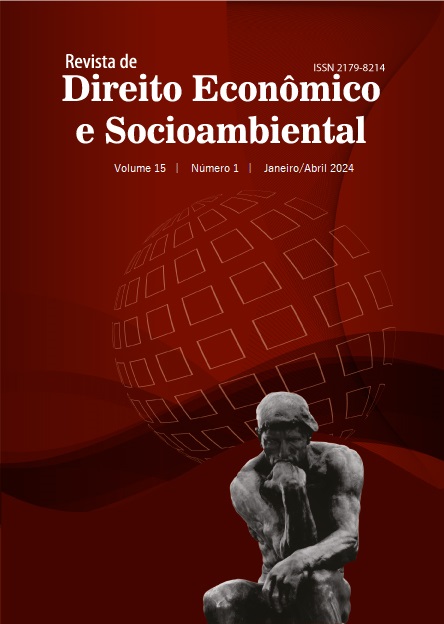Global taxes on greenhouse gases emissions: a democratic intertwining between fiscal and climate justice
DOI:
https://doi.org/10.7213/revdireconsoc.v15i1.30276Keywords:
global taxation; climate justice; fiscal justice; contemporary political theory; public policy design.Abstract
The goal of the research is to propose a global tax as a Pigouvian disincentive for carbon emissions and to finance reparations and generate sustainable alternatives for socially excluded people. A design of international fiscal and environmental policy inspired by radical democracy is proposed, through the institutionalization of an international fiscal authority capable of collecting and administering taxes that collect revevenue from greenhouse gas emissions. This perspective includes a doubly standpoint, placed on New Fiscal Sociology and neoconstructivism in public policy design. It is also based on a critical dialogue with the political and democratic omissions in studies on global taxes. The literature on taxation and democracy suggests that environmental and social equity policies funded by international funds are more successful if they are associated with tax collection and subject to democratic and inclusive processes. Therefore, a democratic-participatory arrangement is proposed to democratize international fiscal relations and promote climate justice. The recent tax reform in Colombia and similar proposals in Chile and Brazil can serve as inspiration for the design of democratic-participatory forums, as procedural and substantive elements to aid debates on taxes for climate justice.
Downloads
Downloads
Published
How to Cite
Issue
Section
License
Copyright (c) 2024 ConfiguraçõesFrancisco Mata Machado Tavares, Carolina Lima Gonçalves

This work is licensed under a Creative Commons Attribution 4.0 International License.
Authors who publish in this Journal agree to the following terms:
- Authors retain copyright and grant the Journal of Economic and Socio-Environmental Law the right of first publication with the article simultaneously licensed under the Creative Commons - Attribution 4.0 International which allows sharing the work with recognition of the authors and its initial publication in this Journal.
- Authors are able to take on additional contracts separately, for non-exclusive distribution of the version of the paper published in this Journal (eg.: publishing in institutional repository or as a book), with a recognition of its initial publication in this Journal.
- Authors are allowed and encouraged to publish their work online (eg.: in institutional repositories or on their personal website) at any point before or during the submission process, as it can lead to productive exchanges, as well as increase the impact and the citation of the published work (see the Effect of Open Access).





















